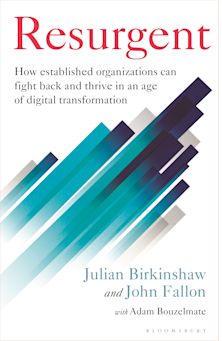- Home
- ACADEMIC
- Business & Management
- Business Communication
- The Power of Strategic Listening
The Power of Strategic Listening
This product is usually dispatched within 1 week
- Delivery and returns info
-
Free US delivery on orders $35 or over
You must sign in to add this item to your wishlist. Please sign in or create an account
Description
Listening is critical in today’s organizations. As recent examples in the #MeToo era and numerous organizational failures and scandals illustrate, the consequences of poor listening in organizations can be significant, and in some cases, catastrophic. Listening is commonly described in terms of ethics, overlooking its strategic value.
The book guides leaders and decision-makers to question the listening habits, practices, and infrastructure within their organizations. The author lays out an argument for the benefits and challenges of strategic listening. She also develops a method for internal analysis of listening capabilities and practices, and provides a framework for building and maintaining a more robust listening culture, infrastructure, and set of practices. In order to improve organizational listening, the author argues that we need to do more than improve personal listening skills, we need to design organizations to listen.
Table of Contents
Chapter 1: Strategic Listening in Organizations
Chapter 2: Obstructions to Listening
Chapter 3: Important Contexts for Listening in Organizations
Chapter 4: Technology and Listening
Chapter 5: Dark Side of Organizational Listening
Chapter 6: Appraisal of Strategic Organizational Listening
Chapter 7: Building and Maintaining Strategic Listening
Appendix A: Observational Guide
Appendix B: Interview Guide
Appendix C: Questionnaire Item Bank
Appendix D: Planning Framework for Enhancing Strategic Listening
Product details
| Published | Oct 22 2019 |
|---|---|
| Format | Hardback |
| Edition | 1st |
| Extent | 182 |
| ISBN | 9781538121306 |
| Imprint | Rowman & Littlefield Publishers |
| Illustrations | 4 b/w illustrations; 7 b/w photos; 5 tables; 16 textboxes |
| Dimensions | 9 x 6 inches |
| Publisher | Bloomsbury Publishing |
About the contributors
Reviews
-
In this timely, practical book, Lewis (organizational communication, Univ. of Texas, San Antonio) highlights the significance of and need to understand and practice listening, a vital communication skill that scholars of organizational communication have historically overlooked. Paying attention to the ways that listening both benefits and obstructs effective organizing, the author synthesizes real-life cases with theory and research to show that listening is a vital communication process necessary for individuals, groups, and organizations to thrive in modern high-tech society. Supporting her argument with vivid contemporary and past examples, Lewis presents the ramifications of failures in organizational listening, the role of technology, and the dark side of organizational listening. Of particular significance is Lewis’s bold proposal that rather than emphasizing individuals’ listening practice, organizations must make strategic organizational listening a constitutive feature of their processes, systems, and structures. Drawing on her extensive experience as a teacher, researcher, consultant, and organizational leader, the author provides practical instruments, for example a listening audit tool she calls APPRAISE meant to help organizational leaders interested in enhancing their ability to design and maintain strategic organizational listening processes. This is a must-read for organizational leaders, scholars, and students in organizational communication, management, public administration, and labor relations.
Summing Up: Highly recommended. Upper-division undergraduates through faculty and professionals.Choice Reviews
-
“Listening” has become a hollow buzzword in too many places. This much-needed book delivers sustenance for appreciating and sustaining the strategic use of intelligence that is invaluable to an organization’s success.
John Paluszek, Executive Editor, Business in Society
-
Improving listening is perhaps the most transformative intervention an organization can undertake. Dr. Laurie Lewis's The Power of Strategic Listening makes clear why listening is so important and provides concrete strategies for listening well and building organizational listening skill and capacity. Dr. Lewis's listening principles mastery of empirical research, and interesting stories shine in this book.
Joshua B. Barbour, Associate Professor at the University of Texas at Austin, Department of Communication Studies | Moody College of Communication


































